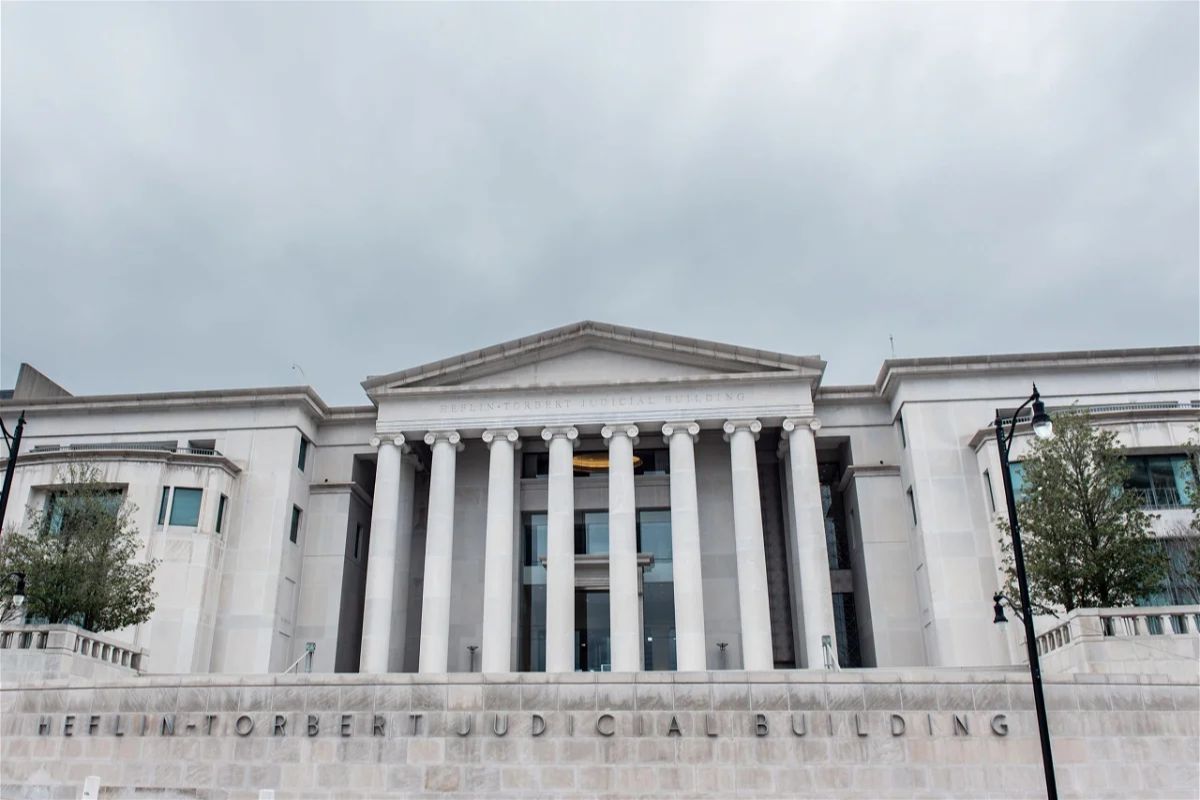Groups Seek Rehearing on Alabama Embryo Ruling: The recent legal battle surrounding the Alabama embryo ruling has sparked intense debate among legal experts, medical professionals, and ethicists alike. With groups now seeking a rehearing, the implications of this case extend far beyond the courtroom.
The decision not only affects the rights of the individuals involved but also raises significant questions about the future of reproductive technology and the role of legislation in such deeply personal matters.
As the case continues to unfold, the potential ramifications for similar cases nationwide are sure to be closely monitored.
Alabama Supreme Court Frozen Embryo Ruling
Has the Alabama Supreme Court’s ruling on frozen embryos sparked legal controversy? Indeed, groups representing defendants in the lawsuits that led to this ruling have filed an application seeking a rehearing of the case. The Alabama Supreme Court’s decision to consider frozen embryos as children has raised significant legal questions and implications. This ruling has ignited debates about the legal status of embryos, the rights they possess, and the potential impact on reproductive rights and family law.
By defining frozen embryos as children, the court has entered a complex legal arena where issues of personhood, reproductive technology, and parental rights intersect. The implications of this ruling extend beyond the specific cases at hand, potentially setting a precedent that could influence future legal decisions regarding embryos and assisted reproductive technologies.
The pursuit of a rehearing by the defendant groups underscores the contentious nature of the Alabama Supreme Court’s ruling and the divergent perspectives on the legal treatment of frozen embryos. This legal battle highlights the need for clarity and consistency in the legal framework governing reproductive rights and technologies.
Ruling Background and Repercussions
The Alabama Supreme Court’s ruling on frozen embryos at a Mobile hospital has generated significant concerns regarding its implications for infertility treatments and reproductive rights. Stemming from lawsuits over the destruction of frozen embryos, the court’s assertion that embryos are to be considered children irrespective of their location has raised alarms within the medical and legal communities.
The decision has sparked apprehensions about the potential legal ramifications for individuals and healthcare providers involved in procedures that may impact embryos. Health care providers fear that the ruling could restrict the availability of certain infertility treatments and technologies, potentially limiting options for individuals seeking to start families.
Additionally, reproductive rights advocates have expressed worries about the broader implications of the ruling on individuals’ autonomy over their reproductive choices. The ruling’s impact on established practices and the legal landscape surrounding assisted reproductive technologies remains a topic of intense discussion and scrutiny within the medical and legal spheres.

READ MORE: Medical Experts Urge Alabama Court: Revisit Frozen Embryo Decision
Application for Rehearing and Legislative Response
Defendants in the Alabama embryo ruling case have formally submitted an application for rehearing with the state’s Supreme Court. Despite the rarity of such requests being granted, the contentious nature of the ruling has sparked significant interest and support from various organizations.
The following developments have unfolded:
- The defendants, Center for Reproductive Medicine and the Mobile Infirmary, filed an application and brief for reconsideration.
- The Medical Association of the State of Alabama and the Alabama Hospital Association have submitted a brief in support of the rehearing request.
- The Supreme Court will carefully consider the arguments presented in the application and brief before making a decision.
- The outcome of the rehearing application could have far-reaching implications for the field of in vitro fertilization (IVF) treatments in Alabama.
- Legislative efforts are being discussed to address concerns and potentially safeguard the practice of IVF in the state.
Legal Background and Impact on IVF Clinics
Amidst the ongoing legal battle over the Alabama embryo ruling and the application for rehearing, the impact on IVF clinics in the state has raised significant concerns and prompted a closer examination of the legal background surrounding reproductive rights in this context. The ruling’s definition of ‘extrauterine children’ and its categorization under the state’s Wrongful Death of a Minor law have led to IVF clinics in Alabama pausing certain treatments. This decision has created uncertainty for families seeking fertility solutions, highlighting the intricate legal landscape and legislative response that intersect with reproductive rights. The implications for IVF procedures are profound, necessitating a careful consideration of the ramifications on both a legal and practical level.
| Legal Background and Impact on IVF Clinics | ||
|---|---|---|
| Challenges Faced | Reactions | Implications |
| IVF clinics pausing treatments | Uncertainty among families | Complex legal landscape |
| Definition of ‘extrauterine children’ | Legal intersection with reproductive rights | Legislative response |
| Categorization under Wrongful Death of a Minor law | Examination of legal definitions | Practical implications for IVF procedures |
News in Brief
The Alabama embryo ruling, where frozen embryos were deemed children by the Supreme Court, sparks intense legal debates. Groups representing defendants seek a rehearing, underlining the far-reaching implications on reproductive technology, parental rights, and family law. The ruling’s complexity involves defining embryos as children, impacting assisted reproductive technologies. Concerns arise about potential limitations on infertility treatments and autonomy over reproductive choices. Defendants, including the Center for Reproductive Medicine, file for rehearing, supported by medical and hospital associations. Legislative responses are discussed to address concerns and safeguard in vitro fertilization practices. The ruling prompts IVF clinics to pause treatments, creating uncertainty and emphasizing the intricate legal landscape affecting families seeking fertility solutions.

